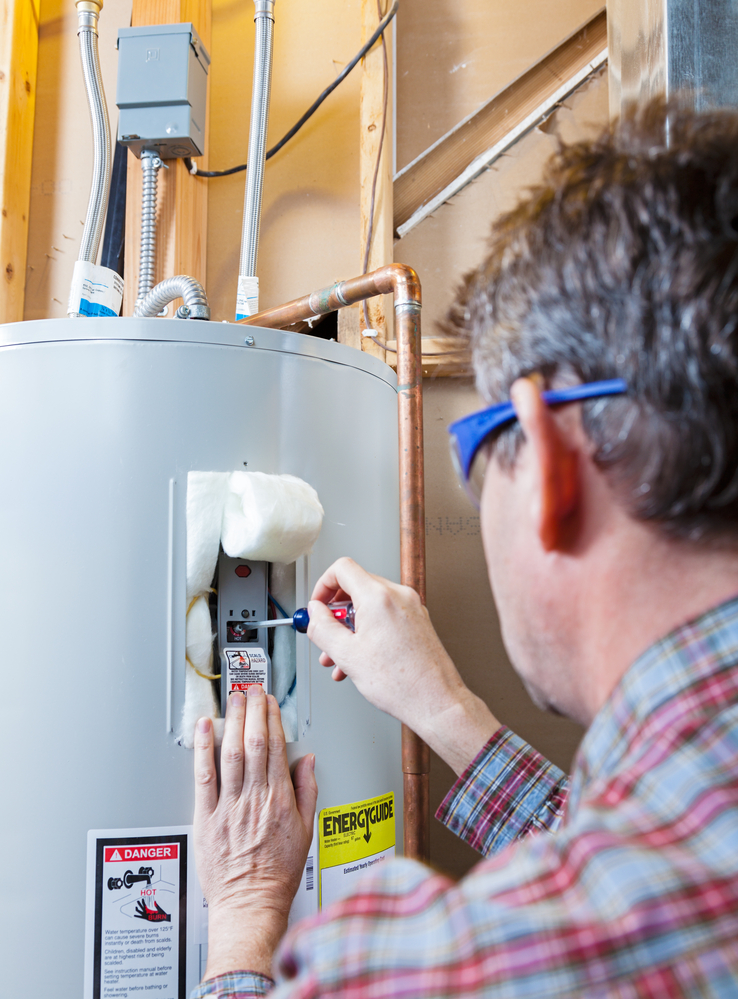Affordable Plumbing Engineers for Water Heaters
Seattle Water Heaters
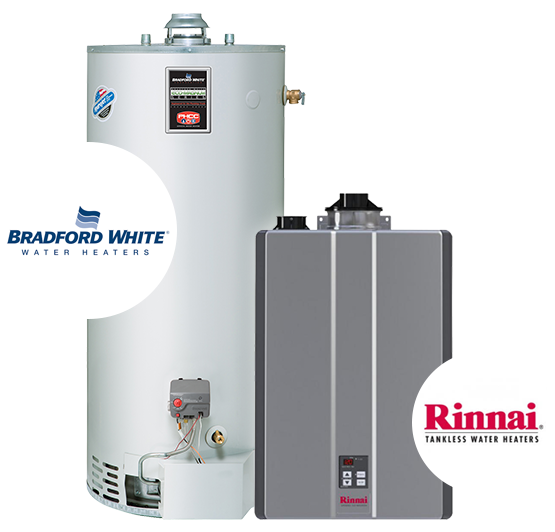
Signs To Look Out for That Your Water Heater May be About to Explode
Although we rarely consider it, your water heater is also a potential bomb that might seriously hurt you and destroy your home. Explosion accidents can result in considerable property damage, injuries, and even fatalities.
Poor installation or maintenance performed by unlicensed plumbers can lead to water heater failures or explosions. Anything that puts too much pressure on your water heating system, such as a faulty anode rod or a lot of sediment accumulation, might cause your water heater to explode. Your water heater could explode as a result of a gas leak because of the high fire risk.
What Are the Signs?
-
Leaky pressure valve
The purpose of the pressure valve is to prevent an excessive build-up of pressure inside the tank while your heater is heating water. But occasionally, the mechanisms designed to prevent this can fail, allowing an excessive amount of pressure to build up. This results in a leak in the pressure valve, which is a warning sign of a serious issue.
-
The smell of rotten eggs
If you have a gas-powered water heater and the area around your appliance smells like rotten eggs or sulfur, you most likely have a gas leak.
Propane and natural gas have an awful odor, similar to rotten eggs or sulfur. The scent you perceive is ethanethiol (also known as ethyl mercaptan), which gas companies add to propane and natural gas to make the carbon monoxide gas odor-detectable.
If you suspect a gas leak in your appliance, you should turn the gas off right away and call a plumber to inspect and make any necessary repairs.
-
Popping noise
Contact the local plumbing professional right away if you hear cracking, popping, or rumbling coming from your water heater. The noises coming from your appliance are caused by hard water and mineral build-up.
When minerals accumulate on the water heater’s surface, a distinct popping sound emanates from the appliance. This indicates that there are issues with your water heater. The water heater’s sediment layer (in the tank), which also boils along with the water, contains air pockets that cause the popping sound.
If your water heater is making creaking or rumbling noises, you need to flush the sediment out of the tank. If removing the sediment does not fix the issue, your unit may have a significant problem.
It’s important that you are aware that the strange noises emanating from your appliance are concerning and indicate that it may soon break, leak, or burst.
The best course of action is to replace your water heater tank before it develops a costly leak.
-
Poor installation
Given that you’re presumably not an expert in water heater installation, this one is a little trickier to spot. Poor installations can cause pressure build-up, gas leaks, and other issues that could result in your water heater exploding. If you believe that your water heater was not installed properly, get in touch with Seattle Water Heaters so that we can help not only ensure that it was installed properly but that it is also operating at its best!
-
Hazy water
Is the water flowing from your appliance cloudy? Is the odor of the water metallic? Water with a musty odor indicates a problem with your appliance. Mineral buildup spreads throughout the appliance and taints the hot water that comes out of your faucet. They have a metallic flavor and smell as well.
Deposits can damage faucets and obstruct components that control water flow. Additionally, orange or red-colored water pouring from the appliance means the tank and pipes have rusted and probably need to be replaced.
The water should be filtered if you are concerned about the cloudy condition. You should be aware that rusty water causes no major health problems. However, you must replace your water heater tank once rust has set in.
It is crucial to turn off your water heater immediately and call a plumber if you see any of these symptoms. Exploding water heaters are extremely dangerous and can seriously harm your house as well as injure you or others. If you see any of these signs, don’t take any chances with your safety; turn off the power to your water heater and contact a professional.
We sincerely hope that this has given you a better understanding of the warning indications that your water heater might be about to blow. Please don’t hesitate to contact Seattle Water Heaters at any time if you have any more queries or worries.
Explosions with Water Heaters: what NOT to do
Avoid the following in addition to not attempting to fix a water heater yourself if you are concerned that it might explode:
- Covering a tank perforation with tape as it only serves to raise pressure and the risk of an explosion.
- Neglecting to get your water heater examined for more than a year
- Ignoring any issue for an extended period of time
- Letting unqualified or untrustworthy technicians handle maintenance on your water heater
My Water Heater is Making Odd Noises
There could be a number of problems causing the weird noises coming from your water heater. First, observe if the appliance is overfilled; if so, simply drain some of the water until the level is right. If the appliance is not overfilled, silt build-up at the tank’s bottom may be the source of the noise. This may occur as mineral deposits build up over time.
You’ll need to flush out the tank to get the sediment out of it in order to solve this issue. Simply connect a garden hose to the tank’s drain valve and turn it open. Allow all of the water to drain until it runs clear, then close the valve and refill the tank. If the noise doesn’t go away, the heater’s heating element could be broken. This will require the services of a professional to fix or replace.
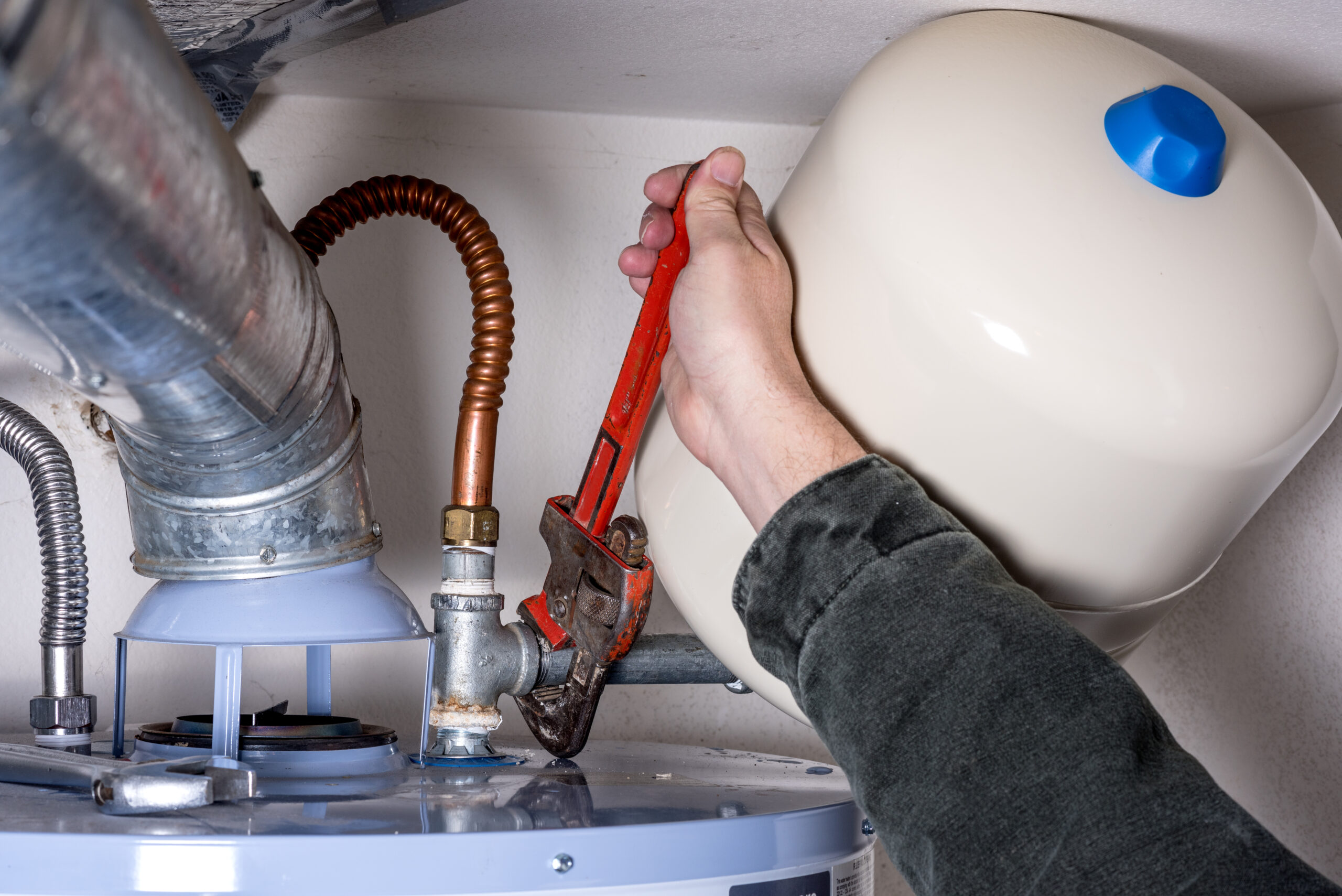

My Water Heater is Leaking
Your water heater may be leaking for a number of reasons. The tank has most likely developed a little crack or hole (which is the most prevalent cause). This may occur as the tank corrodes over time. One of the fittings or pipes that are connected to the tank may also be loose or have a leak.
In order to stop further damage, it’s crucial to turn off the water supply and the unit’s power if you suspect your water heater is leaking. After that, you should get in touch with a licensed plumber to get the appliance fixed or replaced. Use a bucket or other container to collect any water that leaks
Can a Water Heater Leak be Dangerous?
The first step you should take if your water heater leaks is to cut off the power to the appliance. This will halt the flow of water and prevent further damage from occurring. Then, make a call to a plumber to fix the leak. Avoid attempting to fix it yourself because doing so can make it worse.
Take action right away if you notice water leaking from your water heater. Small leaks might not seem like a big concern, but they can be very dangerous.
Water heaters are pressurized containers that hold hot water. In the event of a leak, the pressurized water may spray out and result in severe burns. Additionally, water escaping from the tank can significantly damage your house.

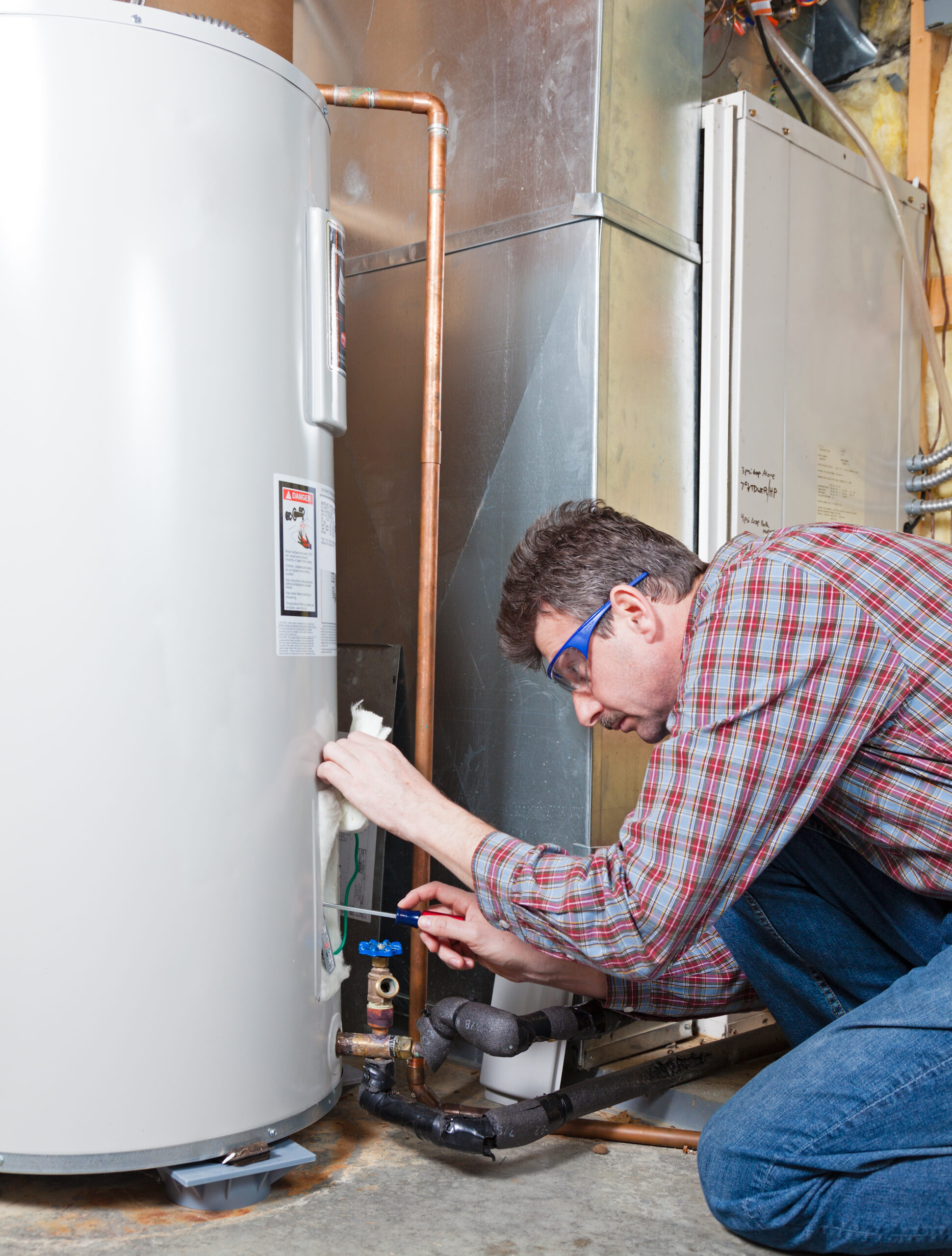
Recently, The Temperature of The Water Coming from My Water Heater Outlets and Taps Has Increased
There are a few potential reasons why the water coming from your water heater outlets and faucets may be warmer than usual. The first possibility is that your water heater’s thermostat is set too high. Another possible factor is the accumulation of silt in the tank, which acts as an insulator for the water and prolongs heat retention. Another possibility, if you have an electric water heater, is that one of the heating elements has failed and is overcompensating by producing excessive heat.
The thermostat should always be checked and set to the appropriate temperature if you suspect it may be the source of the issue. Turn it down to a lower setting if it’s set too high. If sediment build-up is the cause of the issue, you’ll need to flush the water heater tank to get rid of the debris. You can do this task on your own; however, if you don’t feel confident about it, you can always hire a plumber. You should contact an electrician to come take a look at your electric water heater if you think one of the heating elements has failed.
Most of the time, higher water temperature from your water heater is unproblematic and simply remediable. It’s advisable to seek assistance from a specialist, though, if the issue continues or only becomes worse.
Risk of water heater temperature increase
It is common knowledge that if they are not properly maintained, water heaters could be very dangerous. However, a lot of individuals are unaware that a water heater’s risk rises exponentially with temperature.
While the majority of water heaters are programmed to turn off automatically when the temperature reaches about 120 degrees Fahrenheit, some have been known to keep heating long after this point. This might result in boiling hot water gushing out of the faucets, which could result in severe burns in just a few seconds.
It is imperative that everyone is aware of the risks connected with elevated temperatures on water heaters because there have been numerous instances of fatalities from these kinds of mishaps. Make sure to get your water heater checked thoroughly by a skilled specialist if you have any worries about it. By taking these precautions, you can lessen the likelihood that your family will experience any tragedy.
One of the most crucial appliances in our houses is the water heater. They supply us with hot water so we may bathe, clean, and cook. They can, however, turn out to be very hazardous if they are not properly maintained.
You could endanger yourself and your family if your water heater is set to a temperature that is higher than what is safe. These heaters’ raised temperatures might result in scalding hot water coming out of the faucets, which can cause significant burns in a matter of seconds. Some of these mishaps have even resulted in fatalities.
It is crucial that everyone is aware of the risks posed by water heaters with higher operating temperatures. Make sure to get in touch with a professional as soon as possible if you have any worries about the safety of your own water heater or that of someone else’s. They will be able to evaluate the circumstance and guarantee everyone’s safety.
Here are some guidelines for maintaining the safety of your water heater in the interim:
- Ensure that you are always aware of the water heater’s temperature setting. If it’s too high, immediately lower it.
- Make sure the thermostat is functioning properly by checking it frequently. Have it changed as quickly as you can if it isn’t.
- Never leave your water heater on when you’re not home. Make sure to turn it off before leaving the house if you have to leave for whatever reason.
- Regularly check your water heater for any wear or damage indicators. Contact a professional as soon as you see anything that doesn’t seem normal.
- By implementing these recommendations, you may contribute to the safety and efficiency of your water heater. However, always err on the side of caution and get in touch with a professional right away if you have any doubts regarding its state.
As seen, higher water heater temperatures can result in a variety of risks. Scalding, a higher risk of Legionnaires’ illness, and faster corrosion are a few of these. By employing the proper safety precautions, some of these risks can be reduced, but not all of them. As a result, before making any decisions, it is crucial to thoroughly weigh the advantages and disadvantages of higher water heater temperatures.
One of the most important risks connected to higher water heater temperatures is scaling. Water can burn severely if it is heated to a high temperature. These burns can cause excruciating agony and might necessitate hospitalization. They may potentially be fatal in rare circumstances. Due to the thinner and more sensitive nature of their skin, children and the elderly are more vulnerable to scalding injuries.
The increased risk of Legionnaires’ disease is another risk associated with hotter water heaters. Warm water-loving bacteria are to blame for this illness. People can get quite sick if they breathe in polluted water droplets. Pneumonia from Legionnaires’ disease has the potential to be fatal.
Last but not least, higher water heater temperatures can result in a higher danger of house fires. This is due to the fact that the water in the tank has the potential to become boiling hot. Boiling water can start a fire as it can burn through substances, melting them.
You should speak to your neighborhood plumber if you are worried about the risks associated with rising water heater temperatures. He or she will be able to help you in determining a safe water heater temperature and provide you with advice on how to avoid scorching wounds and Legionnaires’ disease.
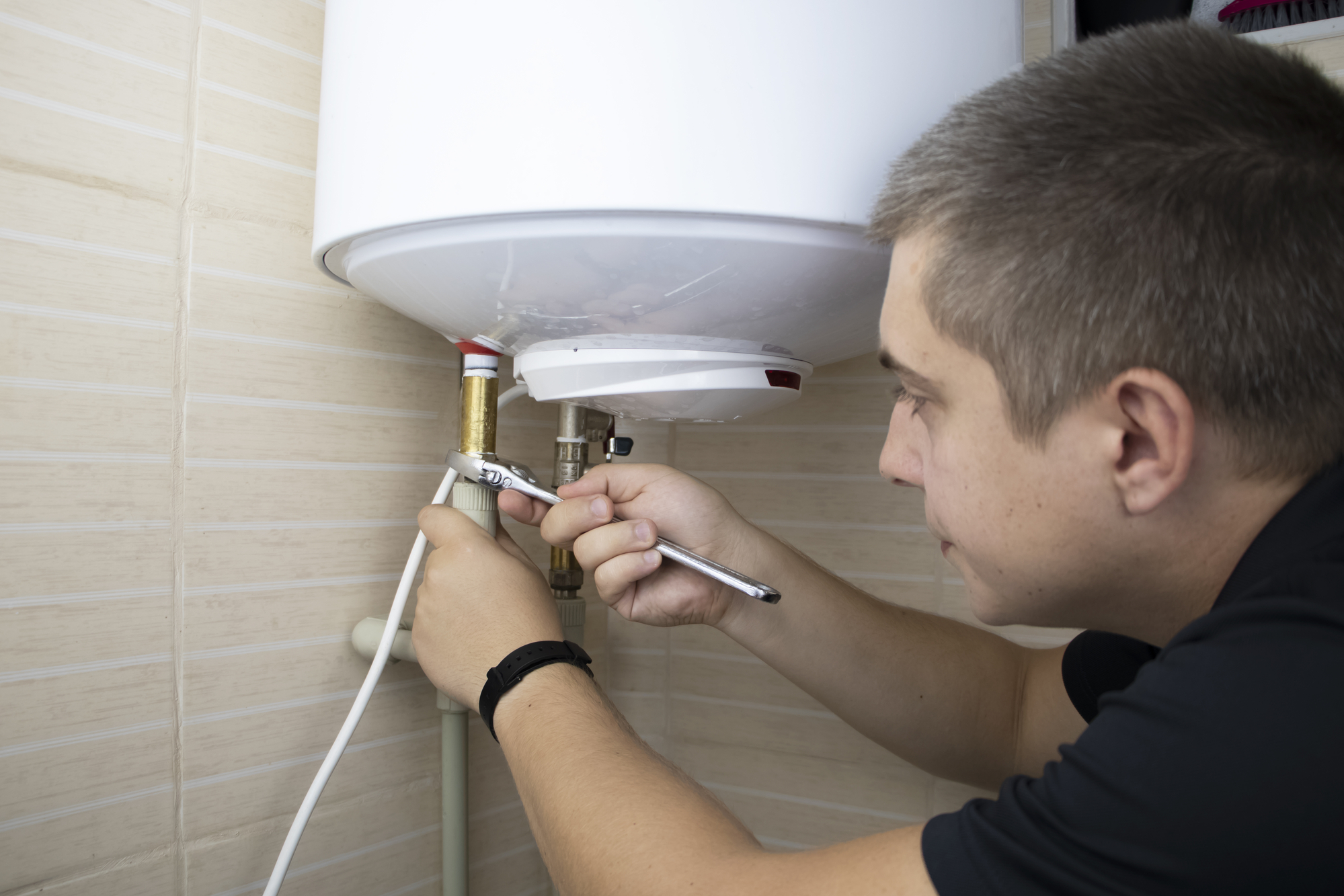
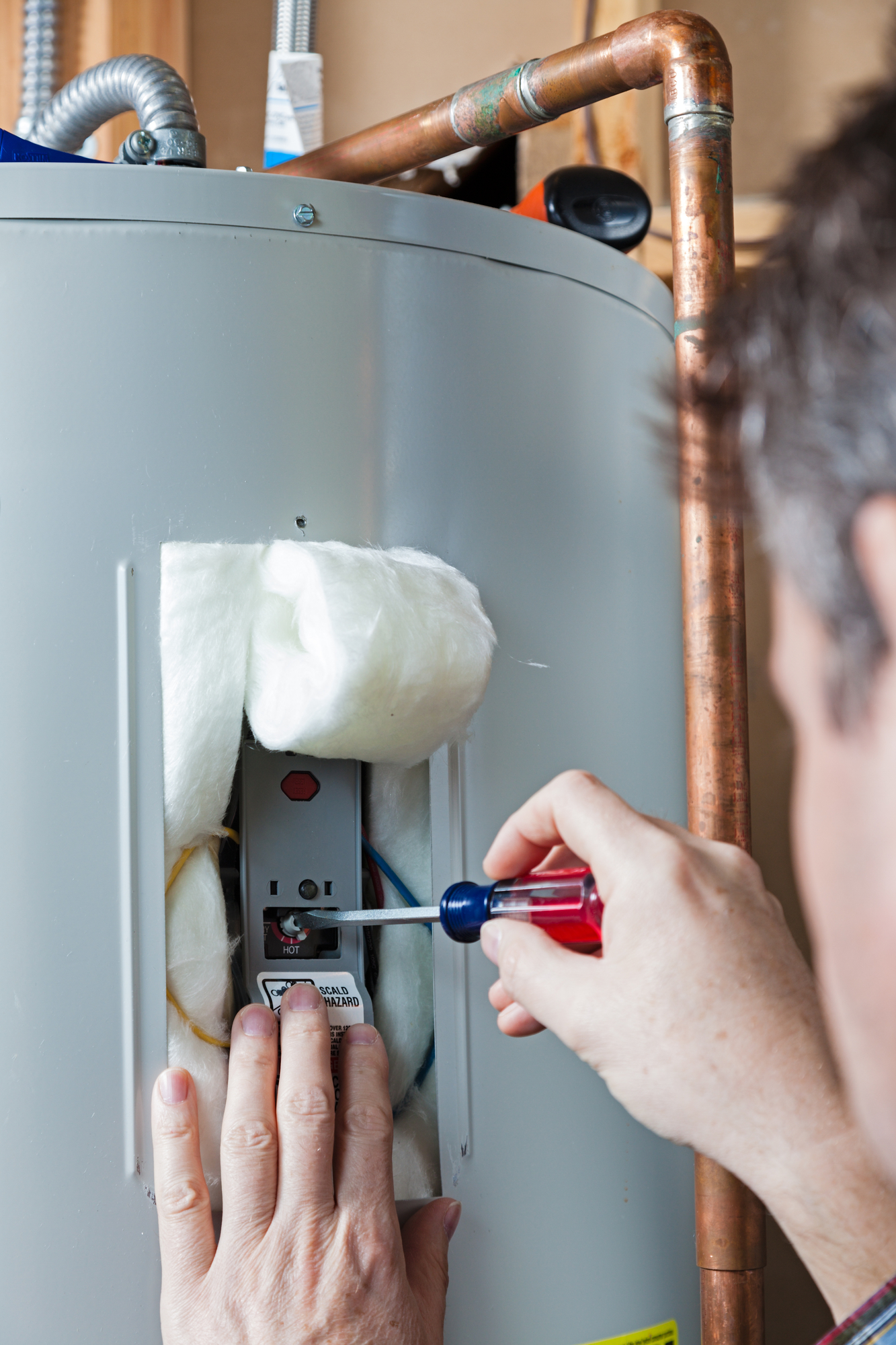

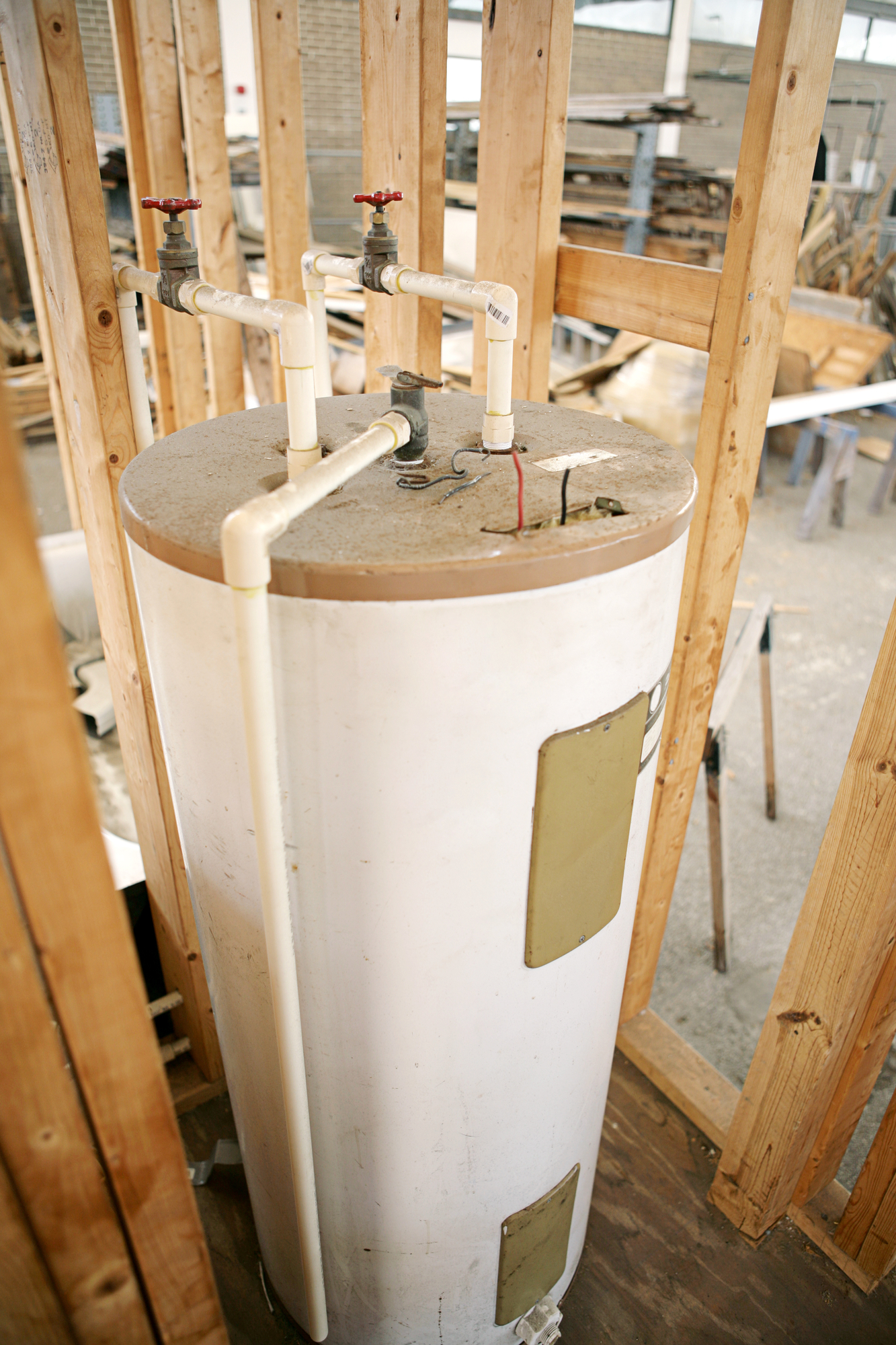
What Does the Rust-Colored Water Coming from My Faucets Mean?
Your water heater is probably at blame if you observe rust-colored water pouring from your faucets. Sediment can accumulate in the tank’s bottom over time, and rust can form on the heating elements. This may result in iron oxide contamination of the water, giving it a rusty hue.
It’s crucial to have your water heater checked by a professional if you notice rusty water. They are able to remove the silt and swap out any worn-out or rusted components. The whole water heater may need to be replaced in some circumstances.
Make sure to get in touch with your neighborhood water utility provider if you have any worries about the quality of your water. They will be able to test your water and inform you of any contaminants.
Your water heater is probably to blame if you discover that the water flowing out of your faucets is rusty in color. Even though this might not seem alarming right away, you should definitely look into it more.
Consuming rusty water can be dangerous since it may contain high quantities of iron, which can cause stomach problems. Furthermore, if the rust is coming from your water heater, this may indicate that the tank is internally rusting and has to be replaced soon.
If you have questions regarding the safety of your drinking water, speak with a plumber or your neighborhood water provider. In the meanwhile, constantly flush your faucets to get rid of any rust-colored water that has accumulated in your pipes.
Can Injuries be Caused by Faulty Water Heaters?
Your water heater could present a severe safety risk if it is not operating properly. In fact, one of the main reasons for house fires is defective water heaters. It is crucial to have your water heater checked out as soon as you detect a problem if you want to avoid more damage.
A water heater can malfunction in a number of ways, but one of the riskiest situations is when it starts to overheat. There are several potential causes, such as a sediment build-up in the tank or a thermostat issue. The water in the tank may begin to boil and produce steam if the temperature rises too high. If this steam comes into touch with skin, it could result in severe burns.
Water heaters can also leak. Water can start to leak out of a water heater’s tank if there is a fracture or hole because water heaters are put under a great deal of pressure. This poses a very high risk of injury because it could cause serious flooding in your house. It is crucial to get your water heater checked out by a trained professional as soon as possible if you think it might be leaking.
Last but not least, malfunctioning water heaters can also lead to carbon monoxide poisoning. A colorless, odorless gas known as carbon monoxide can be deadly if inhaled in sufficient amounts. It’s crucial to quickly have your water heater inspected by a qualified technician if you suspect it’s emitting carbon monoxide.
It is crucial to get your broken water heater fixed or replaced as soon as you can. Faulty water heaters can endanger your health and safety in addition to causing significant harm to your house. It’s important to speak with a trained professional as soon as you suspect that your water heater isn’t operating correctly.
